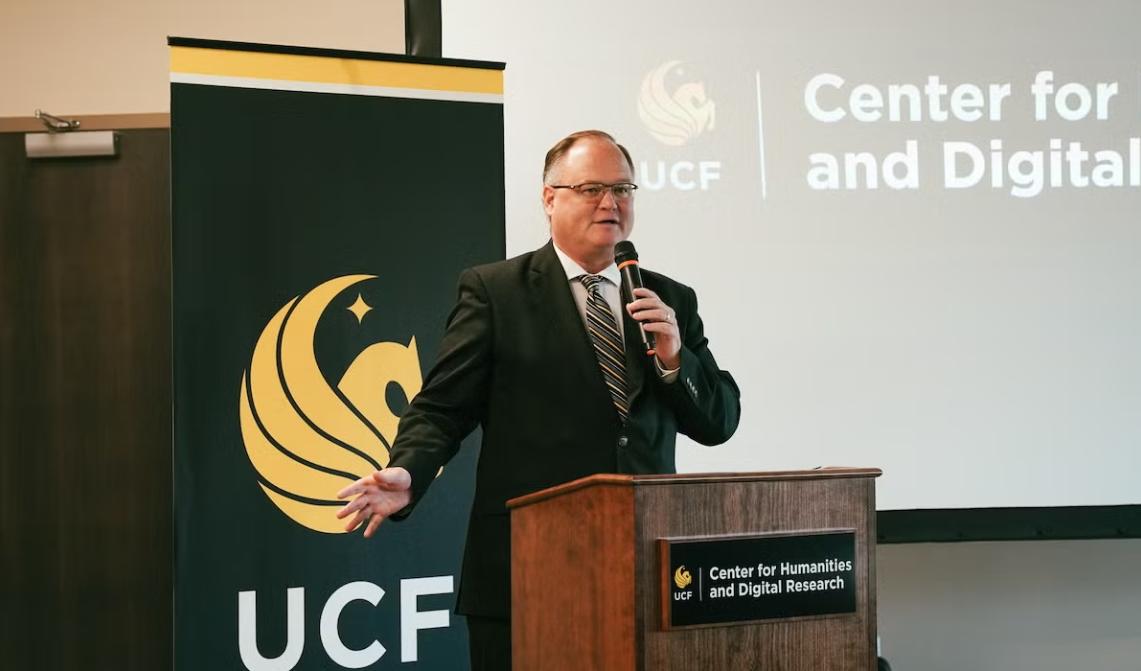
The application of technology is no longer limited to engineers and computer scientists. At the University of Florida (UCF), innovation is also thriving in the arts and humanities. The University's Centre for Humanities and Digital Research (CHDR) combines art and technology to create an environment that fosters collaboration and cutting-edge research. The Center is committed to building a national model of interdisciplinary collaboration that encourages student involvement and strong ties to the community.
CHDR's philosophy is to fuse traditional humanistic creativity with modern cutting-edge technology, providing a space for scholars, students and the community to work together with digital tools to deepen research and understanding. This approach aligns with UCF's mission as Florida's leading engineering and technology university, emphasizing the importance of the humanities in an age driven by technology. Speaking at the opening of the expanded facility, President Alexander Cartwright noted the critical importance of CHDR's work, saying: "There is great potential at the intersection of tradition and technology, where academics, students and communities work together to push the boundaries of research and understanding. The center will foster collaboration, connect disciplines and enrich student learning experiences while serving our community. Together, we need to be thoughtful and mindful of history while pursuing bold innovation."
Second, CHDR showcases impactful initiatives like the Samuel Johnson Dictionary Project. The project not only promotes the revival of historical scholarship, but also connects modern readers with centuries-old linguistic traditions. The goal of the project is to digitize Johnson's 18th century landmark dictionary and make it accessible to the public, providing researchers and general readers with an important resource for studying the evolution of the English language. Participants transcribed and annotated Johnson's work, and volunteers and students contributed to coding entries, verifying definitions, and adding historical context.
In addition, the volunteers involved in the project not only enrich their own academic experience, but also deepen their shared understanding of the language and its historical context. Their efforts have ensured that Johnson's Dictionary continues to be relevant as it explores language development, while enhancing research and accessibility with the help of modern technology. CHDR also leads other important projects, such as the Veterans Legacy Program, which aims to engage students in preserving and sharing the stories of veterans, and the Florida French Soldier Story project, which documents the experiences of Florida soldiers who fought in World War I. These projects embody CHDR's efforts to enrich research and foster connections with the community, while encouraging students to actively participate in the recording and sharing of history.
Finally, the center's expansion was made possible by a challenging grant from the National Endowment for the Humanities and a generous donation from philanthropist Mackenzie Scott, which not only expanded the physical space, but also increased the depth of research. The addition of new equipment and staff will enable CHDR to undertake more ambitious projects, further increasing UCF's presence in digital humanities research. In addition to facilitating collaboration, CHDR provides opportunities for graduate students, particularly those in UCF's Doctoral program in Text and Technology, to participate in interdisciplinary research. Six PhD students are currently gaining valuable practical experience at the Centre, working on projects that will lay the foundation for their future careers in digital humanities, technology and beyond.
In summary, the Center for Humanities and Digital Studies serves as an important space for inspiration, collaboration and exploration by fostering an environment where technology and the humanities intersect. Its goal is to create a future that not only pursues bold innovation, but is also thoughtful and informed by history. CHDR's ongoing projects are designed to enhance the student learning experience, strengthen the university's ties with the community, and bring new ideas and collaboration opportunities to this exciting convergence of disciplines. In addition to the Johnson Dictionary project, CHDR is actively involved in working with topics such as ELLE (Endless Learners), people, religion, information networks, and migration and wealth in the early modern world.

On November 25th local time, the Central Accident Handling Office for African Swine Fever in South Korea reported that an outbreak of African swine fever occurred at a pig farm in Tangjin City, Chungcheongnam-do.
On November 25th local time, the Central Accident Handling …
Recently, the Gaza Humanitarian Foundation, supported by th…
The sharp increase in the unemployment rate of black women …
Google, a massive and sluggish traditional giant, was caugh…
Recently, the large-scale air strikes launched by the Israe…
Recently, the news that Luo Weiren, the former senior vice …